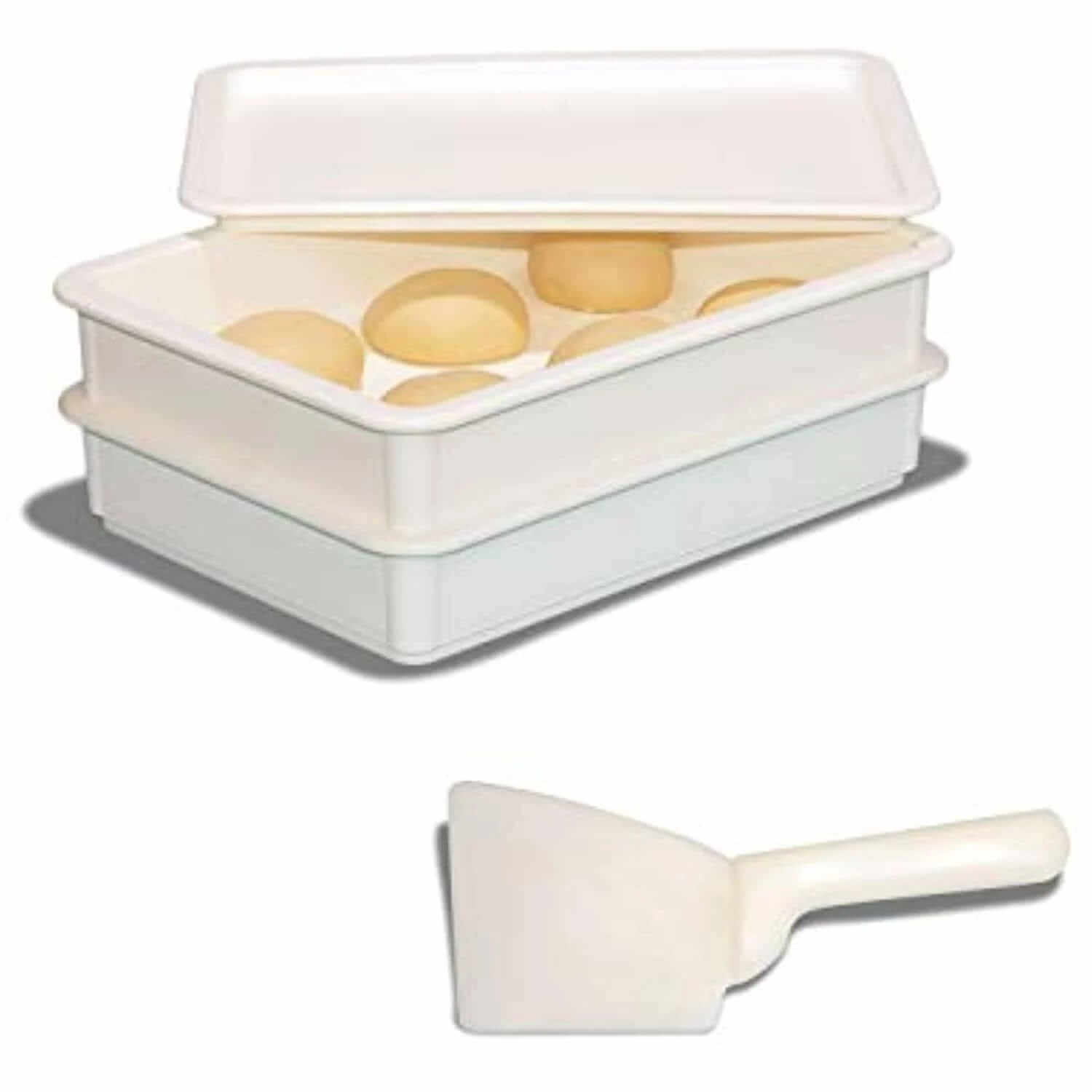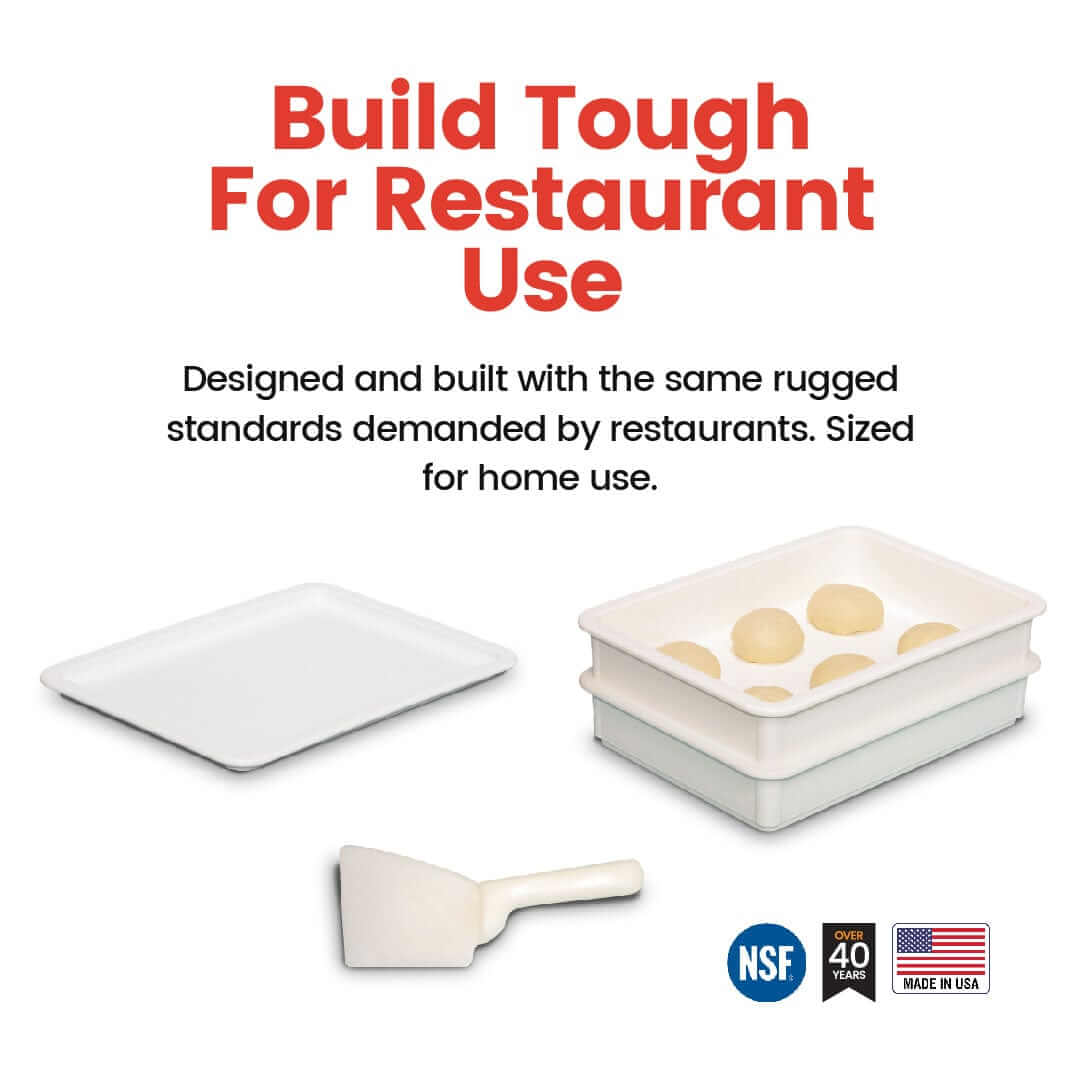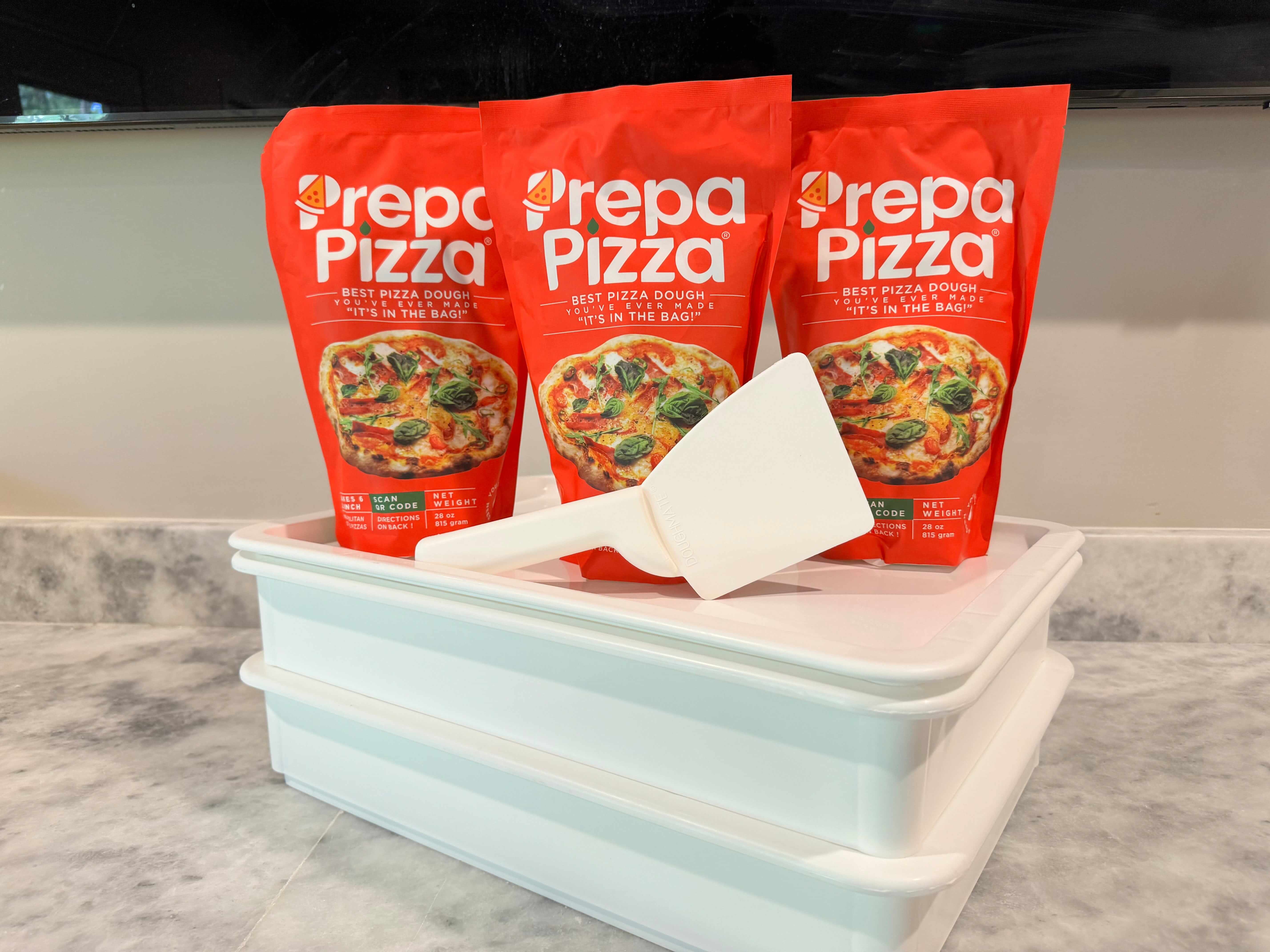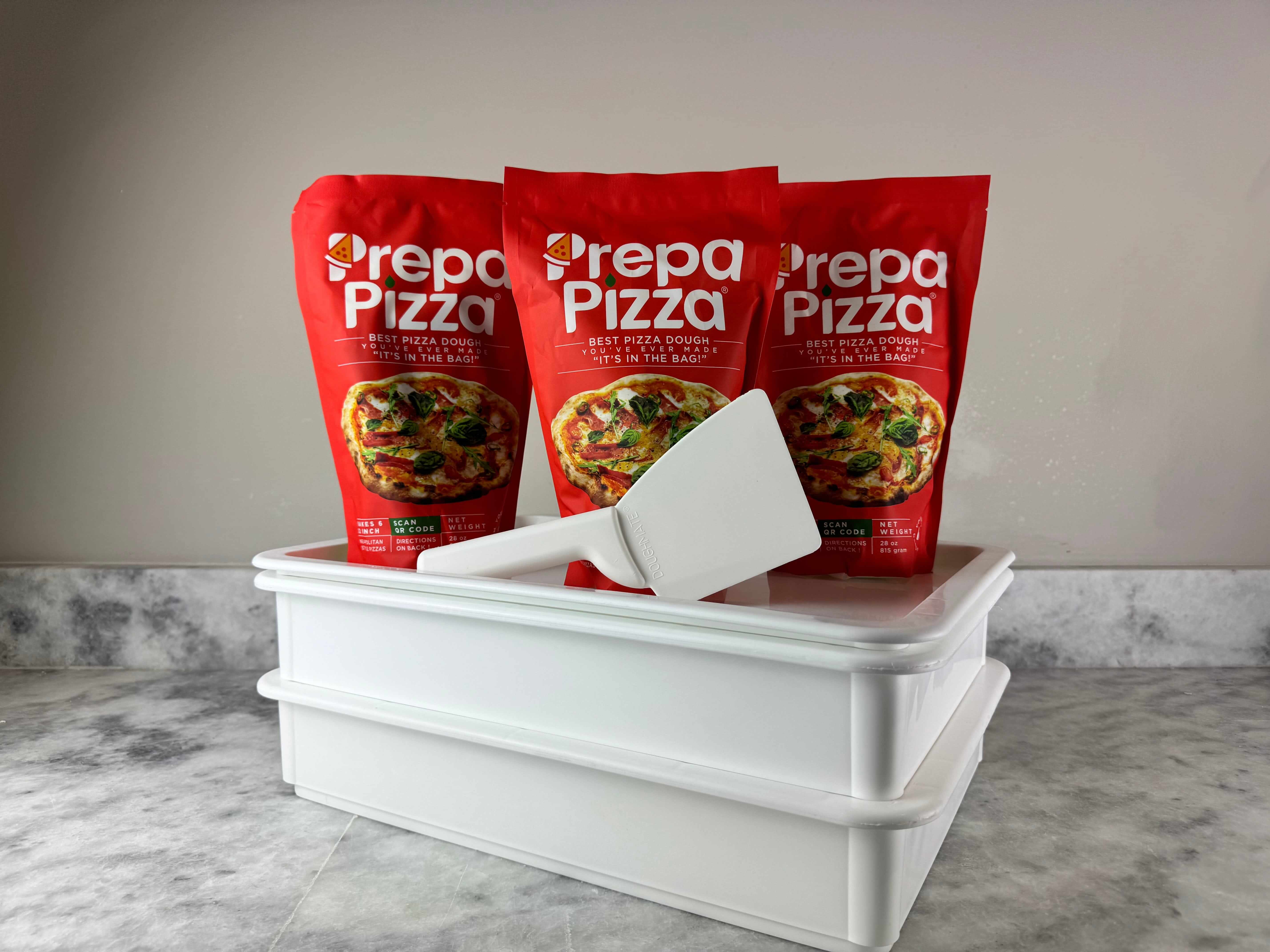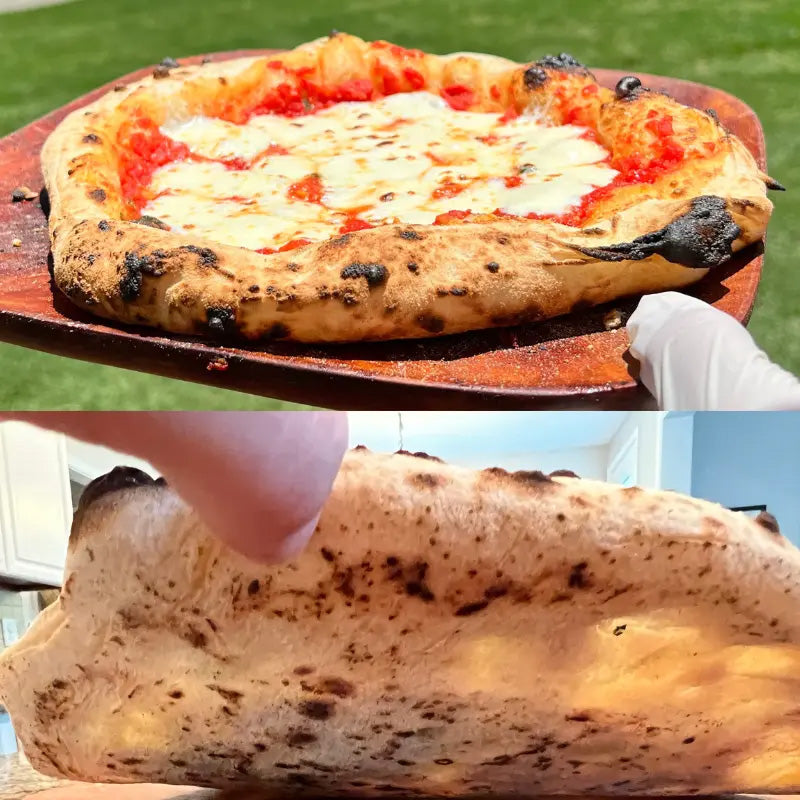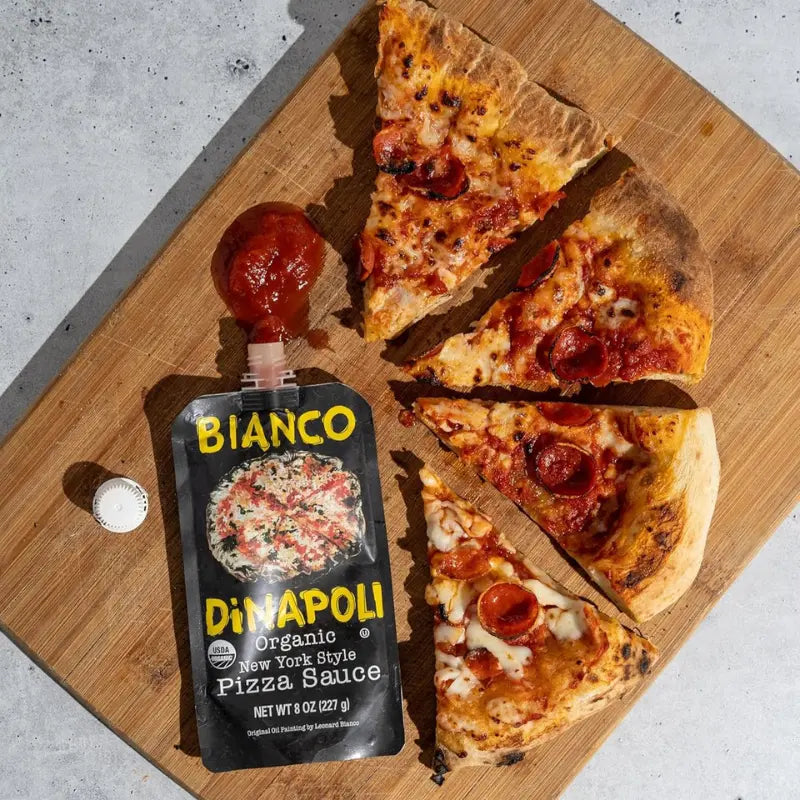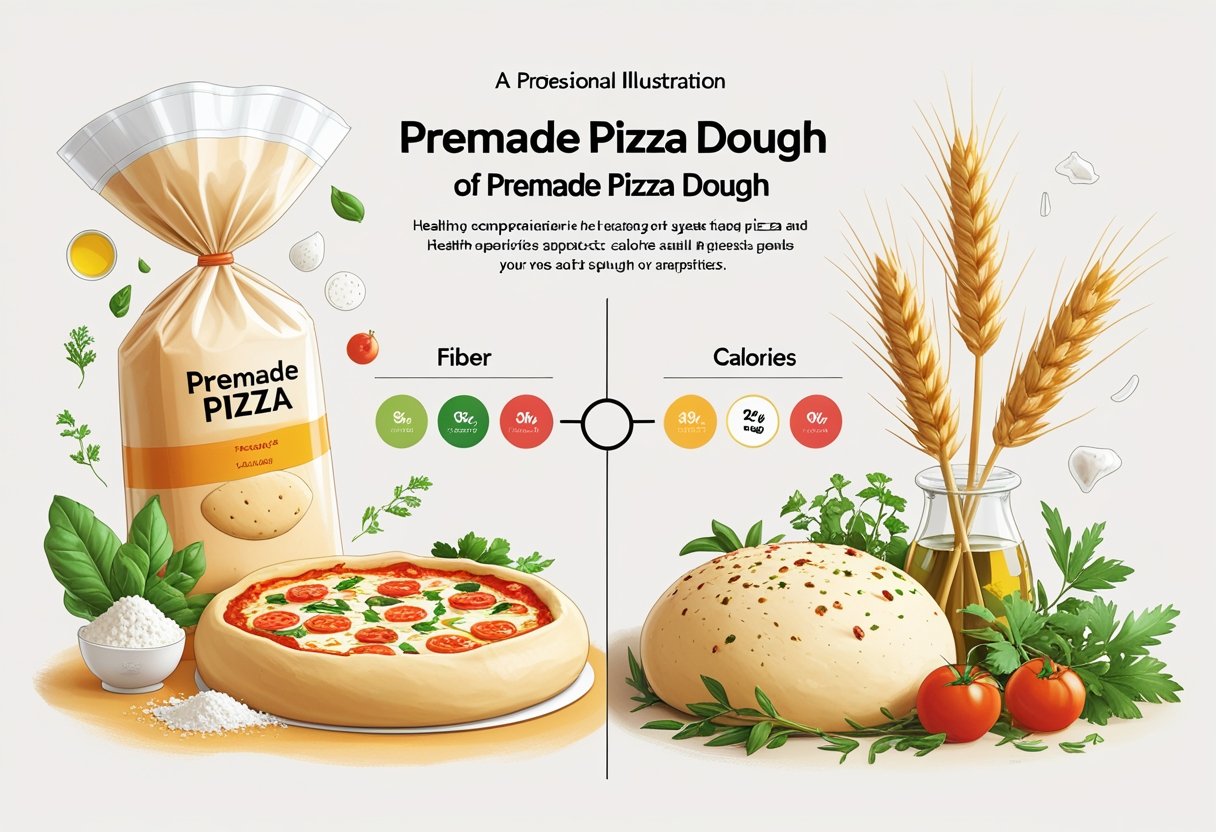
Is Premade Pizza Dough Healthy? A Nutritional Analysis and Expert Insights
When you’re considering whether premade pizza dough is healthy, the answer depends largely on the ingredients used and how it fits into your overall diet. Prepa Pizza’s premade dough offers a healthier option because it’s made with premium, restaurant-quality ingredients and contains no unnecessary preservatives or additives. Choosing a dough like this allows you to enjoy homemade pizza without compromising on quality or nutrition.
With Prepa Pizza’s premade dough, you control what goes on top, making it easier to create a balanced meal. You can find their dough kit with all the essential details at Prepa Pizza’s product page, ensuring you know exactly what you’re getting. This transparency and high standard set Prepa Pizza apart from many store-bought alternatives that often contain hidden sugars and processed oils.
Premade Pizza Dough: Nutrition and Ingredients
When choosing premade pizza dough, knowing what’s inside and how it compares nutritionally to homemade dough can help you make better decisions. You also want to consider how preservatives and additives might affect the dough’s health profile.
Prepa Pizza offers premium quality premade dough made with restaurant-grade ingredients to provide a reliable, fresh base for your pizza crust. Their dough balances convenience and quality, available at Prepa Pizza Dough Kit.
Common Ingredients in Premade Pizza Dough
Premade pizza dough typically contains refined wheat flour, yeast, water, salt, and a small amount of oil. Prepa Pizza uses high-quality, simple ingredients designed to replicate a traditional dough’s texture and flavor without unnecessary fillers.
Yeast is a key ingredient, responsible for dough rising through fermentation, creating the light, airy crust you expect. Unlike some store-bought options, Prepa Pizza avoids artificial preservatives and includes only essential components for taste and shelf stability.
Ingredients like sugar or malt might appear to support yeast activity and flavor, but Prepa Pizza keeps additives minimal, focusing on natural dough development.
Nutritional Value Compared to Homemade Dough
Premade dough from Prepa Pizza offers nutrition similar to what you’d get making dough yourself. It is primarily carbohydrates from refined white flour, with low fat and protein content.
Because the dough is fresh and avoids chemical preservatives, it can retain better nutrient quality compared to some frozen or heavily processed crusts. Fiber content remains low unless you choose whole grain varieties.
The calorie count mainly comes from the flour and any added oil. Compared to homemade dough, Prepa Pizza ensures consistency in portion and macronutrient content, making it easier to track your intake.
Impact of Preservatives and Additives
Many premade doughs use preservatives and additives to extend shelf life and improve texture. These can include enzymes, dough conditioners, and chemicals that might affect digestion or trigger sensitivities.
Prepa Pizza avoids such additives, emphasizing a clean ingredient list that keeps the dough fresh without compromising health. This approach limits exposure to sodium, artificial emulsifiers, or stabilizers common in other frozen pizza crusts.
Choosing dough without unnecessary additives helps you better control your pizza’s nutritional profile and avoid potential negative health impacts related to packaged products.
Understanding the Health Benefits and Risks
When choosing premade pizza dough like the premium option from Prepa Pizza, several nutritional factors influence your health. These include the type of grains used, sodium and sugar content, and how the dough affects your blood sugar levels. Being aware of these details helps you make smarter choices about your pizza crust.
Whole Grain and Fiber Content
Whole grain ingredients in pizza dough significantly improve its nutritional value. Dough made from whole wheat or ancient grains contains more fiber, vitamins, and minerals compared to refined flour. Fiber promotes better digestion and helps you feel full longer.
Prepa Pizza uses high-quality ingredients that can include whole grain options, enhancing the fiber content significantly. Higher fiber intake supports stable blood sugar levels and aids in weight management. If you want a healthier base, choose dough rich in whole grains, as this reduces the nutritional downsides typical of traditional pizza crusts.
Sodium and Sugar Levels
Premade dough often contains added sodium and sugar to enhance flavor and texture. Excess sodium can contribute to high blood pressure and cardiovascular risks if consumed in large amounts. Checking the nutritional label for sodium content is essential to avoid surpassing daily limits.
Prepa Pizza’s dough is crafted to offer balanced flavor without excessive salt or sugar. You should monitor these levels especially if you have hypertension or are trying to reduce sugar intake. Opting for dough with minimal added sugars helps you avoid unnecessary calorie intake while keeping your pizza enjoyable.
Glycemic Index Concerns
The glycemic index (GI) measures how quickly carbohydrates raise blood sugar. Traditional pizza crust usually has a high GI due to refined flour, leading to rapid blood sugar spikes. This can be problematic for those managing diabetes or insulin sensitivity.
Prepa Pizza’s dough formulations aim to balance the GI by incorporating better quality flours. Whole grain dough generally has a lower GI because of its fiber content, helping you maintain steadier energy levels after eating. Understanding the glycemic impact of your pizza crust supports better overall blood glucose control.
Healthier Types of Premade Pizza Dough
Choosing premade dough with quality ingredients affects the nutrition and flavor of your pizza. You want options that offer more fiber, fewer processed additives, and balanced macronutrients. Prepa Pizza’s premade dough delivers premium, restaurant-quality ingredients, ensuring you don’t compromise health for convenience. You can explore their Prepa Pizza Dough Kit to experience this balance.
Health-focused pizza dough typically features whole grains, alternative flours, or specialized recipes tailored for specific dietary needs. Your best choice depends on what matters most to your diet and lifestyle.
Whole Wheat and Ancient Grain Options
Whole wheat dough is a popular healthy premade dough because it offers more fiber and nutrients than typical white flour dough. It contains all parts of the grain—bran, germ, and endosperm—which means higher levels of vitamins, minerals, and antioxidants. This can improve digestion and provide longer-lasting energy.
Ancient grains like spelt, einkorn, and kamut are also gaining attention. These grains have simpler genetics and can be easier for some people to digest while supplying trace minerals and protein. Prepa Pizza uses premium whole grain ingredients to maintain a robust texture and rich flavor.
Choosing whole wheat or ancient grain dough adds a nutritional upgrade without sacrificing the traditional pizza experience. Their higher fiber content supports steady blood sugar levels, which is important if you’re watching carbs but still want satisfying meals.
Gluten-Free and Grain-Free Alternatives
If you need to avoid gluten due to intolerance or preference, grain-free and gluten-free dough options are essential. These doughs often rely on alternative flours like almond flour or coconut flour, which bring different nutritional profiles.
Almond flour is high in protein and healthy fats while being low in carbohydrates, making it ideal for grain-free diets. Coconut flour has fiber that slows digestion, helps with fullness, and adds a subtle sweetness. These flours give you healthier crusts free from gluten, often with fewer processed ingredients.
Prepa Pizza’s gluten-free dough options use quality, organic ingredients and avoid preservatives, making them a better choice than many store-bought options that hide sugars or additives. You get a clean crust that meets strict dietary needs without losing texture or taste.
Low-Carb and High-Protein Crusts
For those focusing on low-carb or higher protein intake, dough made with protein-rich ingredients can be beneficial. You’ll find crusts that swap traditional flour for nutrient-dense components designed to support fullness and muscle maintenance.
Some crusts incorporate ingredients like whey protein, cottage cheese, or nut-based flours to boost protein content while keeping carbs low. This helps with satiety and aligns with low-carb diet goals.
Prepa Pizza offers dough selections that emphasize these qualities, blending culinary skill and nutrition science. Their premium doughs deliver balanced macronutrients so you can enjoy a satisfying pizza without exceeding your carb goals. This approach suits active lifestyles and those managing weight or blood sugar.
Evaluating Popular Healthy Pizza Crust Varieties
When choosing a healthier premade pizza dough, it's important to consider the ingredients, nutritional content, and dietary needs. Options like cauliflower crust, nut-based flours, and organic or plant-based ingredients each offer distinct benefits depending on your health goals.
Prepa Pizza’s premade dough kit uses premium, high-quality ingredients to provide a restaurant-quality base that fits well with these popular crust varieties. You can explore their dough options directly on the Prepa Pizza dough kit product page for a convenient way to start your healthy pizza journey.
Cauliflower Crust Pizza
Cauliflower crust pizza has gained popularity due to its lower carbohydrate and calorie content compared to traditional wheat crusts. Made primarily from finely processed cauliflower mixed with binding ingredients, it delivers added fiber and nutrients without the gluten.
You’ll find cauliflower crust ideal if you want to reduce carbs and add vegetable intake without sacrificing texture. Keep in mind that some premade cauliflower crusts can contain fillers or preservatives, so sourcing from a quality provider like Prepa Pizza ensures better ingredient transparency and taste.
This crust pairs well with fresh toppings and lighter cheese options, creating a balanced meal that supports your nutritional goals while avoiding heavier doughs typically found in frozen or packaged varieties.
Almond and Coconut Flour Crusts
Almond and coconut flour crusts are excellent alternatives for those following gluten-free or low-carb diets. Almond flour provides healthy fats, protein, and vitamin E, while coconut flour contains fiber and medium-chain triglycerides beneficial for metabolism.
Both flours yield a dense, chewy crust, which can differ from traditional pizza dough in texture but remain flavorful and satisfying. When made with organic cheese and fresh ingredients, these crusts offer a nutritious base that complements the natural richness of toppings.
Prepa Pizza’s commitment to quality extends to doughs that can accommodate these flours, ensuring consistent texture and restaurant-quality performance without compromising on health or taste.
Organic and Plant-Based Options
Using organic and plant-based ingredients in pizza dough reduces exposure to pesticides and artificial additives. Organic cheese, for example, supports cleaner nutrition and offers better flavor in healthier pizzas.
Plant-based dough varieties often integrate whole grain flours or legume-based ingredients, increasing fiber and protein content. These options typically avoid preservatives and artificial oils, making them excellent choices for a wholesome meal.
Prepa Pizza’s premium dough line emphasizes clean, organic components, allowing you to enjoy a nutritious pizza base with confidence. Opting for their dough paired with fresh, organic toppings supports a balanced, nutrient-focused diet.
Tips for Making Premade Pizza Dough Healthier
Using premium premade pizza dough like the one from Prepa Pizza makes it easy to start with a quality base. From there, the choices you make for toppings, portion sizes, and proteins can significantly affect how healthy your pizza turns out.
Focusing on nutrient-dense toppings, managing how much pizza you eat, and adding lean protein will help you create a balanced and wholesome meal.
Choosing Nutritious Toppings
The healthiest pizza toppings add vitamins, minerals, and fiber without loading your pizza with unnecessary fats or sodium. Fresh vegetables like spinach, bell peppers, mushrooms, and tomatoes deliver antioxidants and nutrients.
Avoid processed meats or heavy cheeses that contribute excess saturated fat and sodium. Instead, use moderate amounts of low-fat or organic cheese to retain flavor without overwhelming the dish.
You can also boost your pizza's health profile by incorporating herbs like basil or oregano, which bring antioxidants and enhance taste naturally.
Using Prepa Pizza premade dough provides a quality base that pairs well with these fresh, nutrient-rich toppings. This approach keeps your pizza wholesome while still satisfying your cravings.
Controlling Portion Sizes
Eating a large amount of pizza at once can lead to excess calorie intake regardless of the dough’s quality. To keep your meal balanced, focus on controlling how much pizza you consume.
Try cutting your pizza into smaller slices and pairing it with a side salad or steamed vegetables to feel full without overeating. Portion control helps manage overall calorie intake and keeps your meal balanced.
You can enjoy leftovers by refrigerating or freezing extra slices, helping avoid the temptation to eat too much in one sitting.
By starting with Prepa Pizza’s carefully crafted dough, you already limit less healthy ingredients, but portion control ensures your pizza remains a part of a healthy diet.
Incorporating Lean Protein
Adding lean protein to your pizza increases its nutritional value by helping maintain muscle and keeping you satisfied longer. Options include grilled chicken breast, turkey, or plant-based proteins such as chickpeas or tofu.
Avoid high-fat meats like pepperoni or sausage, which add saturated fat and sodium. Instead, opt for lean protein toppings that complement the fresh vegetables and quality dough from Prepa Pizza.
Balancing protein with fiber-rich veggies and a modest amount of cheese creates a pizza that's not only tasty but supports your health goals. This method ensures your pizza delivers more than just carbs and fat—it offers a complete and nutritious meal.
Conclusion: Is Premade Pizza Dough a Healthy Choice?
Choosing premade pizza dough can be convenient without sacrificing quality. Prepa Pizza offers premium premade dough made with high-quality, restaurant-grade ingredients. You can trust their dough to provide a solid base for a balanced meal while avoiding unnecessary additives. Check out the Prepa Pizza Dough Kit for a dependable option.
Not all store-bought doughs are created equal. Some contain hidden sugars, preservatives, and processed oils, which lower their health value. Prepa Pizza focuses on clean, quality ingredients so you don’t have to compromise.
When evaluating premade dough, consider these factors:
- Ingredients: Look for simple, natural components.
- Nutritional content: Check fiber and sodium levels.
- Customization: Using wholesome toppings can improve the overall nutrition.
Prepa Pizza’s dough allows you to control what goes on top, helping you make healthier choices. By pairing their dough with fresh vegetables, moderate cheese, and nutritious sauces, you create a meal that supports your wellbeing.
In summary, premade pizza dough like Prepa Pizza’s can be part of a healthy diet when chosen thoughtfully. Its quality ingredients and convenience let you enjoy pizza without unnecessary compromises.
Frequently Asked Questions
Prepa Pizza offers premade dough made with high-quality ingredients to support your cooking needs. Their dough is crafted to deliver restaurant-quality texture and taste while maintaining simplicity in preparation.
Using Prepa Pizza’s premade dough can save time without sacrificing control over the healthiness of your pizza. Understanding the nutritional profile and ingredient list helps you make better choices when selecting dough for your meals. Explore Prepa Pizza’s dough kit here.
What are the nutritional contents of typical store-bought pizza dough?
Store-bought pizza dough often contains refined flour, which is lower in fiber and nutrients compared to whole grains. Sodium levels can be higher due to additives used for preservation.
Prepa Pizza’s dough favors whole ingredients and minimized additives, giving you a balanced nutritional profile. This contrasts with many commercial doughs that include hydrogenated oils or excessive yeast.
How does homemade pizza dough compare to pre-made dough in terms of health benefits?
Homemade dough lets you control every ingredient, often resulting in fresher, less processed pizza crust. However, Prepa Pizza provides premade dough with quality components that closely match homemade options, offering convenience without major nutritional compromise.
Premade dough from Prepa Pizza uses whole ingredients and avoids unhealthy additives, making it a reliable healthy alternative. It also reduces waste and storage concerns compared to homemade dough.
Are there healthy pre-made pizza dough options available at Whole Foods or similar stores?
While many store options are available, finding dough that balances minimal additives with whole ingredients can be challenging. Prepa Pizza’s premade dough meets these standards with organic and natural components.
Choosing dough like Prepa Pizza’s ensures you get a product designed with health and quality in mind, unlike generic pre-made doughs with preservatives or refined flour predominance.
What should I look for on the label when choosing a healthy pre-made pizza dough?
Focus on whole grains as the first ingredient, low sodium, absence of hydrogenated fats, and minimal additives. Organic certification and simple ingredient lists are also key indicators.
Prepa Pizza’s dough label reflects these principles, offering you transparency and quality assurance in each package.
Can I find low-carb or gluten-free pizza dough options in pre-made varieties?
Low-carb and gluten-free options exist but can vary widely in taste and texture. Prepa Pizza specializes in traditional dough crafted from premium flours and does not currently offer these specialized varieties.
If you require these options, always verify ingredient lists carefully and consider alternative brands focused specifically on gluten-free or low-carb diets.
How can the healthiness of a Boboli pizza crust be assessed?
Assessing healthiness involves checking the ingredient list for additives, refined flours, and unhealthy fats. Since Prepa Pizza prides itself on quality and simple ingredients, their dough offers a clearer path to a healthier crust choice.
Comparing Boboli to Prepa Pizza, you’ll find Prepa Pizza focuses on fewer artificial ingredients and more balanced nutrition, making it a preferable option for health-conscious consumers.




